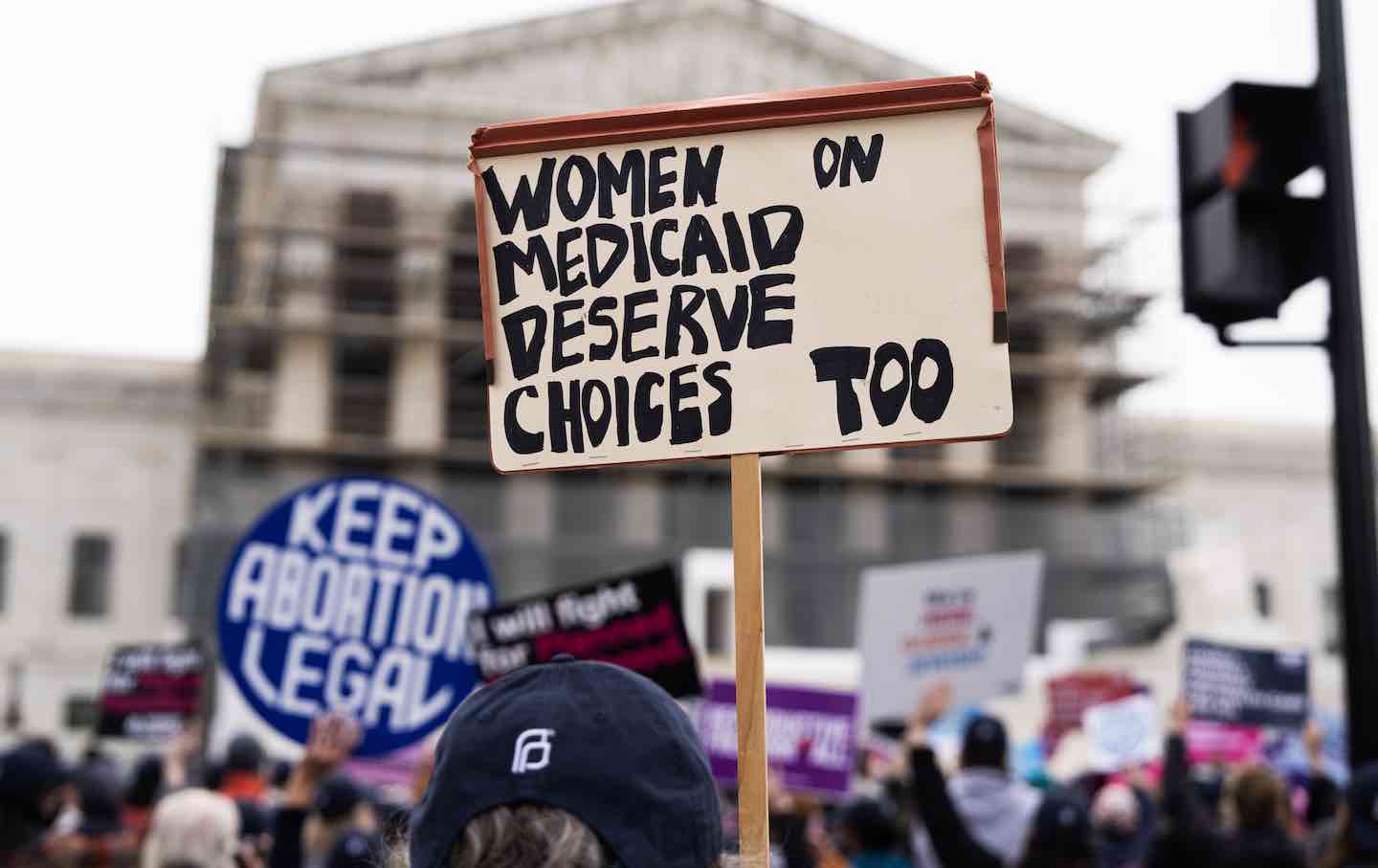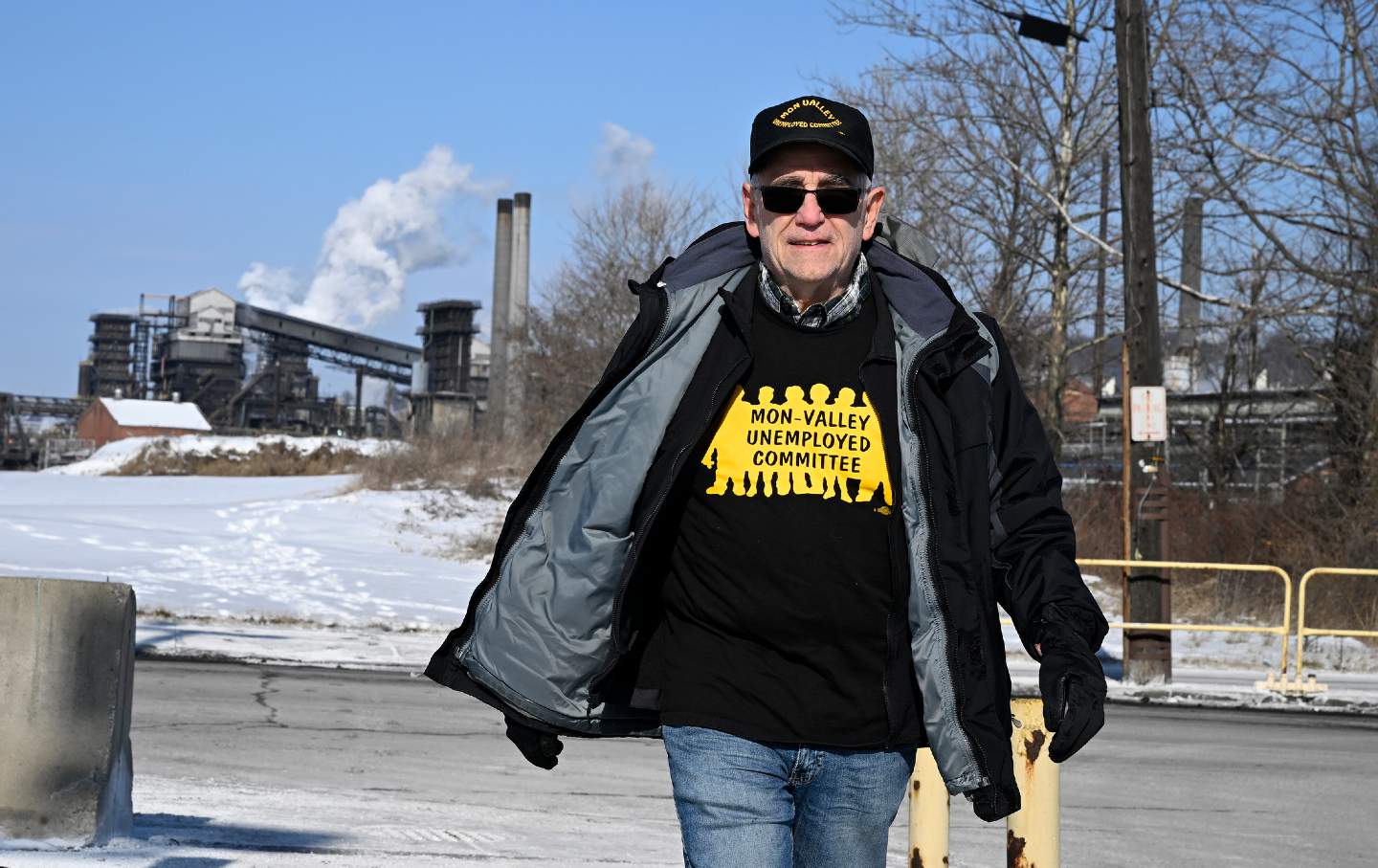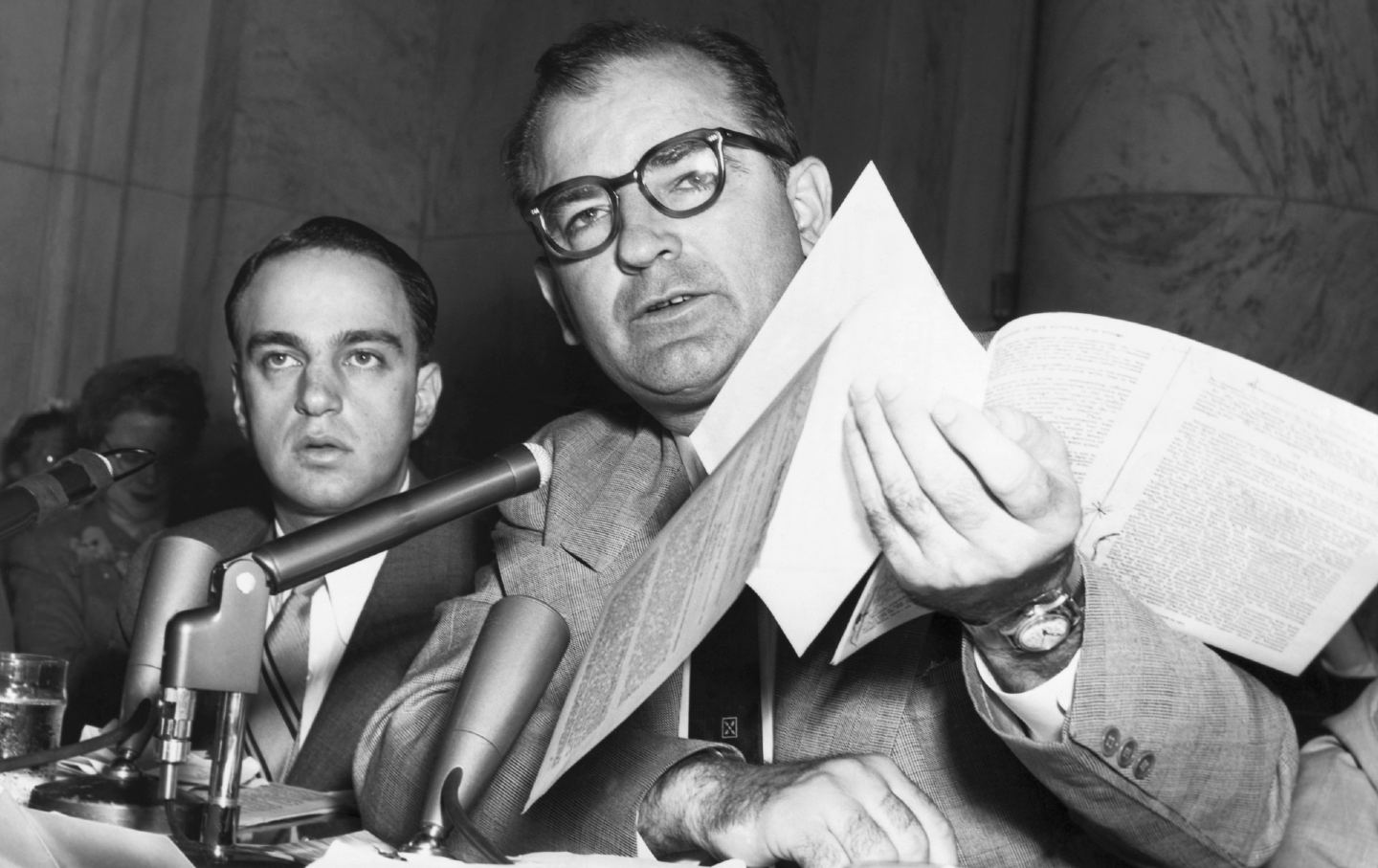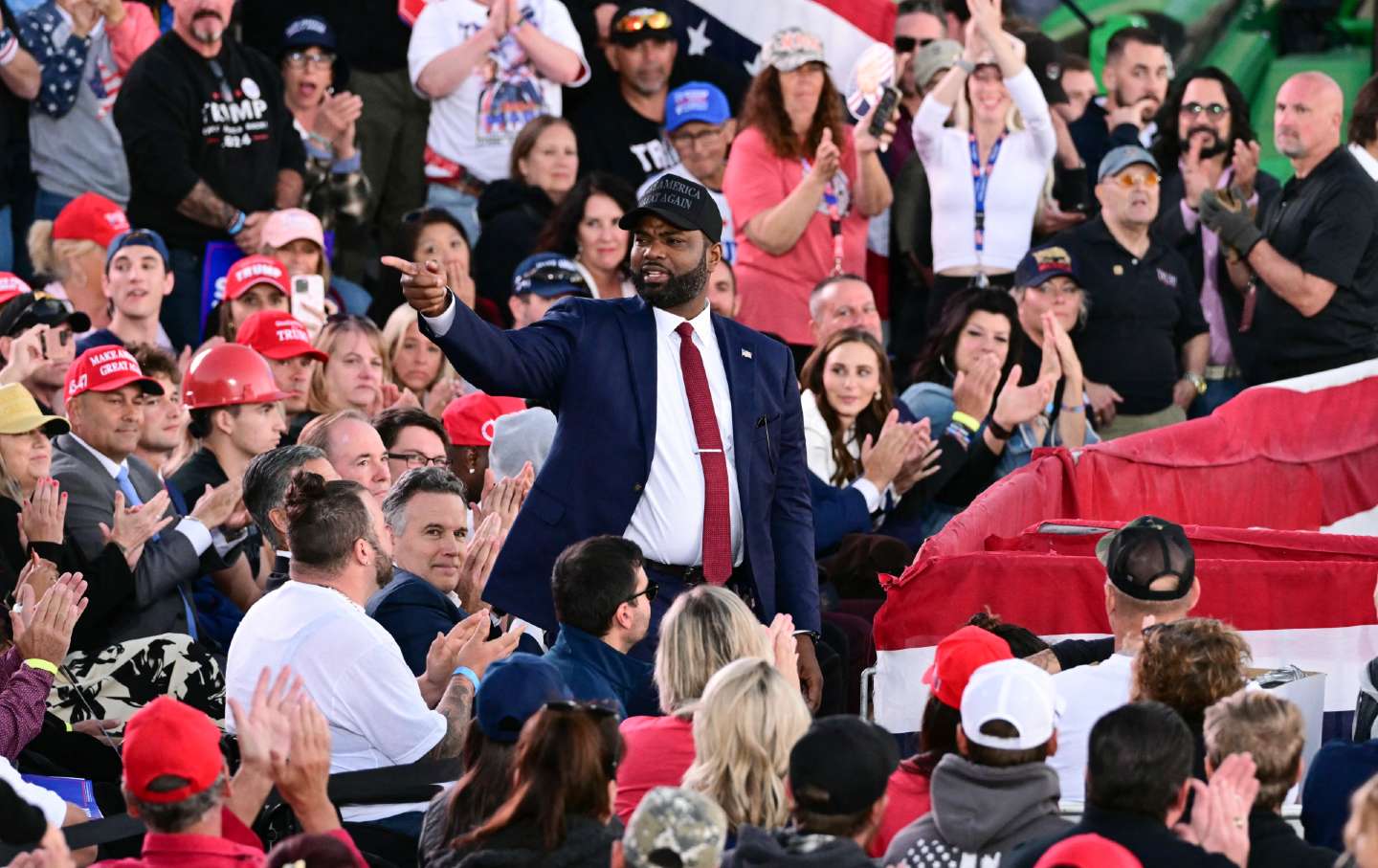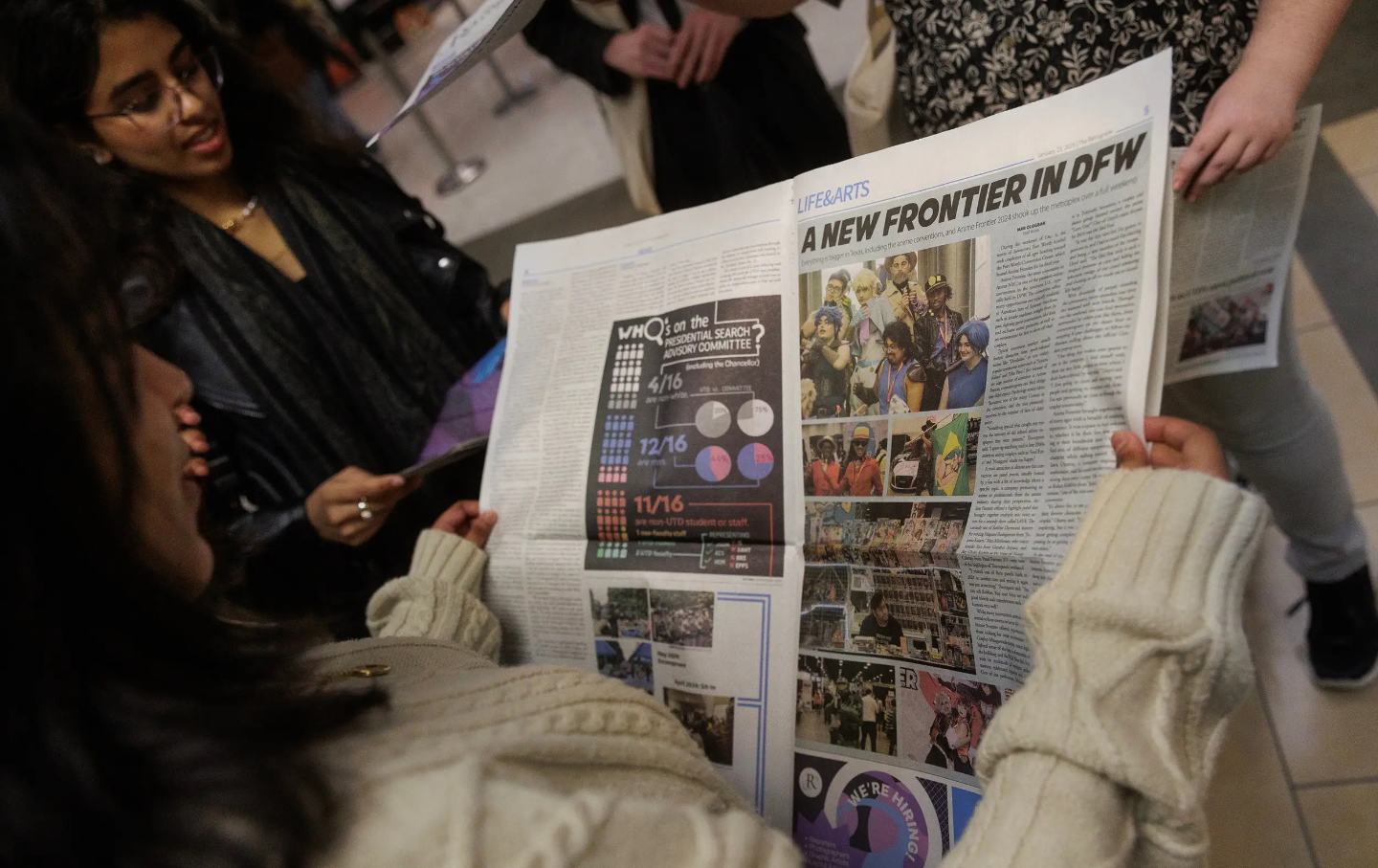TikTok’s Terrible, Horrible, No Good, Very Bad Day in Court
Most of the justices seemed unpersuaded by TikTok’s arguments against the ban on the company—but that doesn’t meant TikTok is gone forever (cue Donald Trump…)
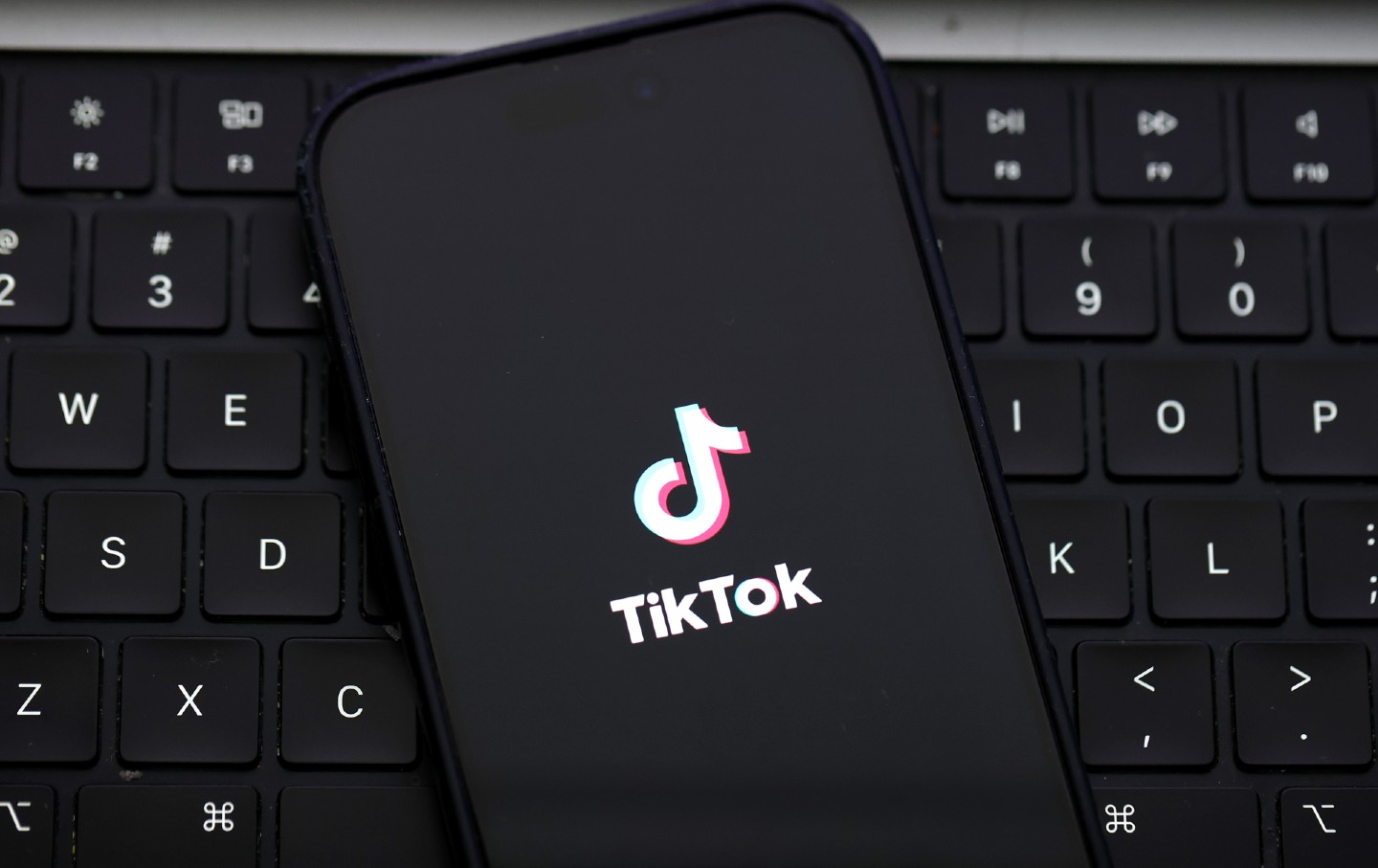
The TikTok logo on an iPhone screen.
(Justin Sullivan / Getty Images)
The popular social media platform TikTok received its day in front of the Supreme Court on Friday. The company argued that a law forcing it to shut down or divest from its parent company, the Chinese-controlled Bytedance, by January 19 was an unconstitutional restriction on free speech.
I would not say that the arguments went well for TikTok, because the justices seemed unpersuaded that TikTok’s free speech rights were implicated at all. Instead, the justices suggested that the speech holder was Bytedance, not TikTok, and that Bytedance, as a foreign company, held no First Amendment rights at all.
For the uninitiated, the law at the center of the case is called the “Protecting Americans from Foreign Adversary Controlled Applications Act” (PAFACA). The law defines a number of countries as “foreign adversaries,” including China, and prevents American companies from supporting or promoting applications that are largely controlled by those adversaries. The government can’t make Bytedance “shut down” TikTok, but it can prevent TikTok from being sold or updated through, say, the Google App store. It effectively serves as a ban on the service, so long as it is owned by a company the United States has determined is controlled by an adverse foreign government.
The PAFACA was the result of a lot of work. Readers will remember that back in April of 2020, then-President Donald Trump via executive order demanded that TikTok be shut down or divested from Bytedance. The Supreme Court stayed that order, because the president does not have the authority to ban entire companies. But Congress does.
Then, in April 2024, after several years of investigations into Bytedance’s practices, and the relationship between TikTok and Bytedance, Congress passed and President Joe Biden signed the PAFACA. They argued that the Chinese government, through Bytedance, could too easily use TikTok to gather data about US citizens, government officials, and people who aren’t even on TikTok, and use that information for nefarious purposes. The law gave Bytedance 270 days to divest TikTok.
I am not an expert on the national security concerns surrounding social media platforms that enable foreign governments’ datamining for information that can be used against Americans. More important, neither are the Supreme Court justices. For that ostensible reason, the court is supposed to give extreme deference to the elected branches of government when it comes to national security threats and laws designed to protect this country. Indeed, the court has historically given Congress and the president a wide berth when those branches have claimed that our national security can be protected only through racism or oppression of non-white people. We’ve seen this in a number of cases—including Korematsu v. United States (in which the court gave its blessing to the internment of Japanese-Americans in concentration camps during World War II), or Trump v. Hawaii (which involved Trump’s Muslim ban). Given what the court will allow the government to get away with in the name of national security, banning a single social media app is comparatively low-stakes.
Well, I should say low-stakes but for the billions and billions of dollars involved. Sorry, I’m so much of a woke, lefty type that I sometimes forget that, while excluding people from the country based on the color of their skin or their religion seems like “high stakes” to me, one rich tech bro not being able to make another billion dollars is what’s considered high stakes to the people who run the country. I’ll try to do better.
For its part, TikTok decided to deal with the usually ironclad national security argument by arguing that it wasn’t being banned because it’s a national security threat but because the government doesn’t like the content on TikTok. More specifically, TikTok argued that, if TikTok wanted to use an algorithm that pushed out Chinese government propaganda, and share information with the Chinese government, as Congress charged, it had a First Amendment right to do so.
TikTok was joined in these arguments by groups representing some of the app’s users as well as the usual array of nonprofit free speech organizations who argue that TikTok content creators also have a First Amendment right to use TikTok and, you know, partner with the Chinese government if that’s what they so wish.
TikTok’s case would be compelling, to me at least… if it were an American-owned and -operated company. But it’s not. And literally the first question out of the mouths of Justices Clarence Thomas, John Roberts, Sam Alito, Elena Kagan, and Amy Coney Barrett, respectively, was some form of: Why does Chinese-owned Bytedance have a free speech right under the United States Constitution?
TikTok’s lawyer, former Trump solicitor general Noel Francisco, was never able to really answer that question. He repeatedly tried to dance around the issue, arguing that American companies have the right to partner with foreign governments without losing their free speech rights—which they most certainly do—but couldn’t resolve the fact that TikTok is not actually an American company, merely a subsidiary of Bytedance.
Alleged attempted rapist Brett Kavanaugh made what I thought was the most important legal point of the entire hearing (regular readers will know how much it hurts me in my soul to say this), when he pointed out that the United States has limited foreign ownership of media outlets throughout its history without making the First Amendment angry. He is right. This country has prohibited radio stations from being primarily owned and operated by adverse foreign powers since the literal invention of the radio. Francisco said that the radio precedent didn’t matter because there is limited bandwidth available for radio, while “the Internet” is unlimited (thanks, Al Gore), but that argument also failed to address the issue at hand: The point is that foreign ownership of radio stations can be and has been banned on the basis of national security concerns without offending the free speech rights of Americans to listen to or speak on the radio.
Popular
“swipe left below to view more authors”Swipe →Justices Sonia Sotomayor and Ketanji Brown Jackson were probably the most stridently against TikTok’s position, arguing that, even if we think American free speech rights will be limited by the PAFACA, those restrictions should survive because of the national security threats. Jackson, as she often does, trapped Francisco brilliantly. She said the case wasn’t really about speech at all but about “association” rights (the First Amendment confers a freedom “to assemble” and that has been interpreted to include a freedom to associate with whoever we please), and Francisco walked right into that; he agreed that TikTok has an association right to be in cahoots with Chinese buddies if it wants to. But then Jackson sprung the trap and pointed out that we ban American companies from associating with foreign adversaries or “terrorists” (her word) all time, which of course we do (you can’t be, say, an American bank, and hold an account open for Al Qaeda, free association rights be damned). That left Francisco sputtering about how the government has a legitimate interest in protecting Americans from Bytedance, but that the forced separation of the company wasn’t the best way to go about protecting that legitimate interest.
Of course, Francisco and TikTok weren’t just making their arguments to the Supreme Court; they were making their arguments to President-elect Trump. Even though Trump led the crusade against TikTok during his first term, there’s a new sheriff in town, Shadow President Elon Musk, and Musk has evidently changed Trump’s tune about the whole matter. In addition to asking the court to declare the PAFACA unconstitutional outright, Francisco also offered that the court could merely stay enforcement of the PAFACA until after January 20, by which point Trump will be in power and might be able to save TikTok.
Trump’s potential influence hung over the whole hearing, and it fell to Kavanaugh (that’s twice I’m praising him—please send help. I’m not OK) to give voice to the elephant in the room. Near the end of the hearing, he asked Solicitor General Elizabeth Prelogar if the incoming president could say “we’re not going to enforce the law”? Kavanaugh’s question anticipated Trump potentially issuing an order to ignore the law, now that he’s apparently on TikTok’s side.
Folks, it is important to understand that, in the year 2025, a legitimate question in front of the Supreme Court is whether the incoming president of the United States is just going to tell American Internet service providers to ignore a law dutifully passed by Congress and signed by the current president not eight months ago. Whether or not the law itself matters is literally where we are at in this country—and an official subject of Supreme Court analysis.
Justice Sotomayor was low-key outraged by the suggestion. She followed up with a series of questions designed to point out that, should Trump tell third parties to ignore the law, the statute of limitations for violating the PAFACA is five years, not four, and so anybody who flouts the law on Trump’s say-so would be banking on another lawless president to succeed him. Still, the entire exchange spoke volumes.
Prelogar, who is maybe the best at this as there’s ever been, gave everybody in the room an off-ramp. She pointed out that if the law is allowed to take effect and TikTok has to shut down on January 19, it could still come back. “There is nothing irrevocable or permanent,” she said. Bytedance could still divest from TikTok after that date, and if it were to do that, TikTok would be allowed to come back online.
Or, if you’re thinking about this in Muskian terms: Trump and Congress could still amend the law after January 19 and do it in such a way that allows TikTok to still exist under Bytedance’s control. There might be an interruption in TikTok’s service, but acting like the platform is just gone forever after the 19th is probably not realistic. Indeed, Prelogar offered that allowing the law to operate as intended might be the impetus for the interested parties to figure something out.
Because of that, I think TikTok will lose its constitutional arguments against the PAFACA, and I don’t think it’s going to be particularly close. I could see this being a 9–0 case affirming the law, or maybe 8–1 with Justice Neil Gorsuch dissenting, as he seemed to be the one most eager to find some way to save TikTok, even though he couldn’t articulate at oral arguments exactly how or why. I think TikTok loses, and I think it shuts down in the US on the 19th.
But I don’t think it’s gone forever. I don’t think Bytedance will ever truly divest (after reading the briefs on this case, I have been convinced that TikTok is actually a very valuable Chinese asset that they plan to use against us for a generation of blackmail and espionage). But I do think that Musk and Trump will find some way to resurrect TikTok under a “we’re totally not China now” owner, or they’ll find some other way to amend the law to allow TikTok to come back.
For my part, I think the government should ban Temu next. One of Francisco’s arguments was that the PAFACA was “under-inclusive,” meaning that the law targeted TikTok while leaving out a bunch of other Chinese-owned apps—like the popular shopping site Temu—that have the same potential to steal and misuse Americans’ data. Francisco made this point to argue that TikTok was being targeted for its speech, not its threat to national security, but all I heard was “hot damn, we should ban a lot more apps for national security reasons.”
I don’t think Shadow President Musk is going to let Trump or Mike Johnson do that, though. Maybe in 2026 Musk will run some kind of Twitter poll where users of America are allowed to weigh in on the issue?


